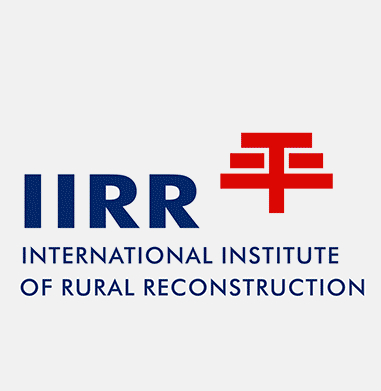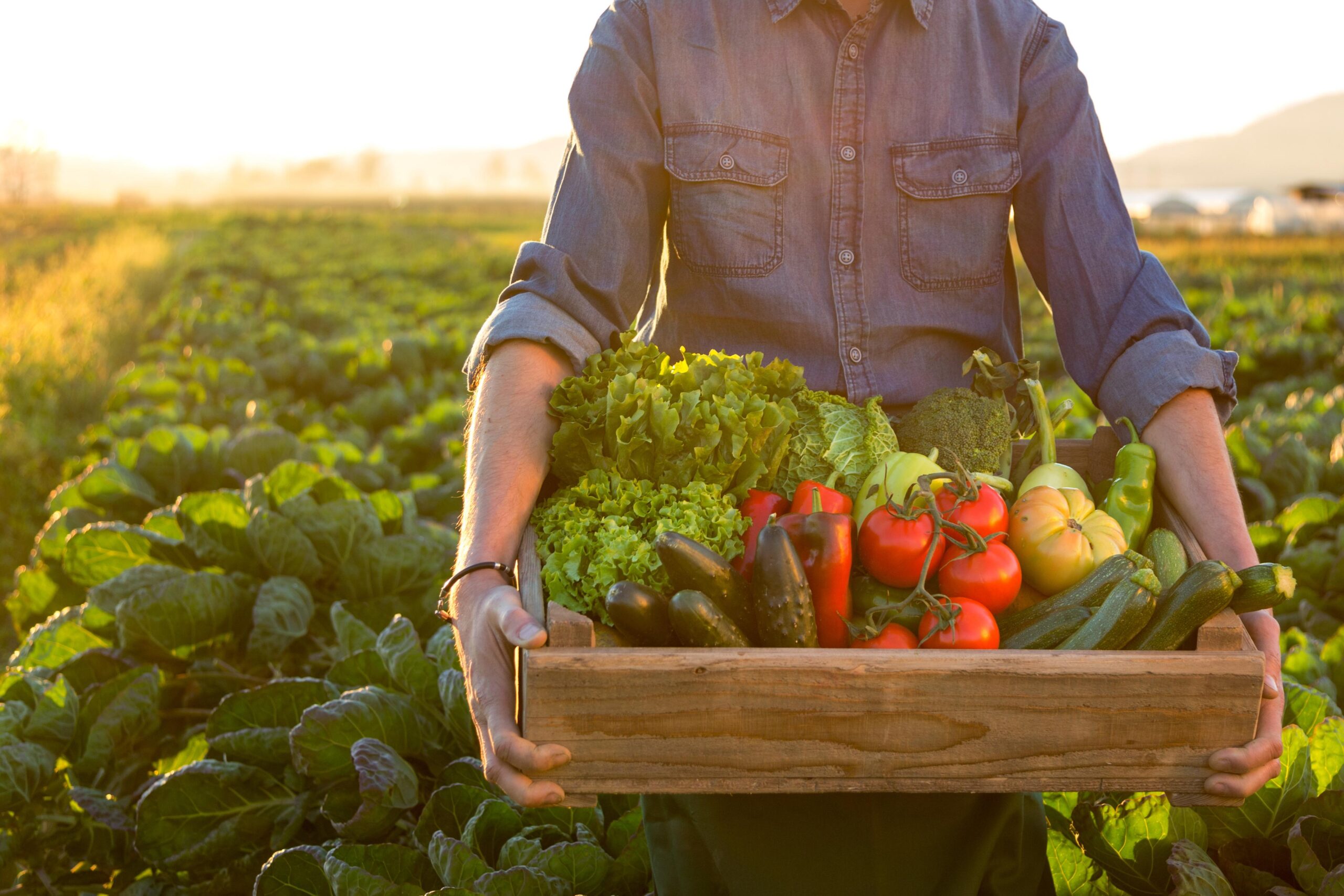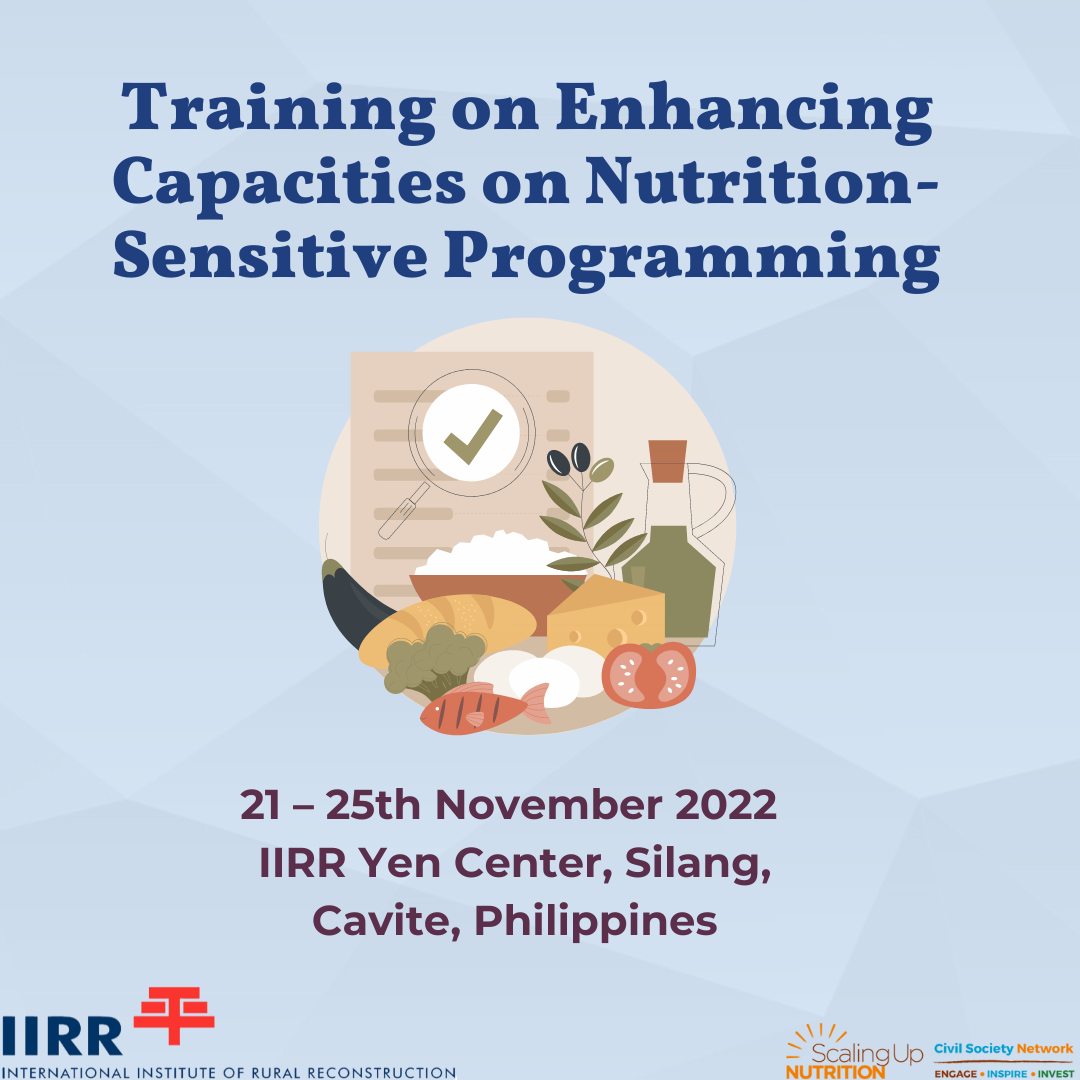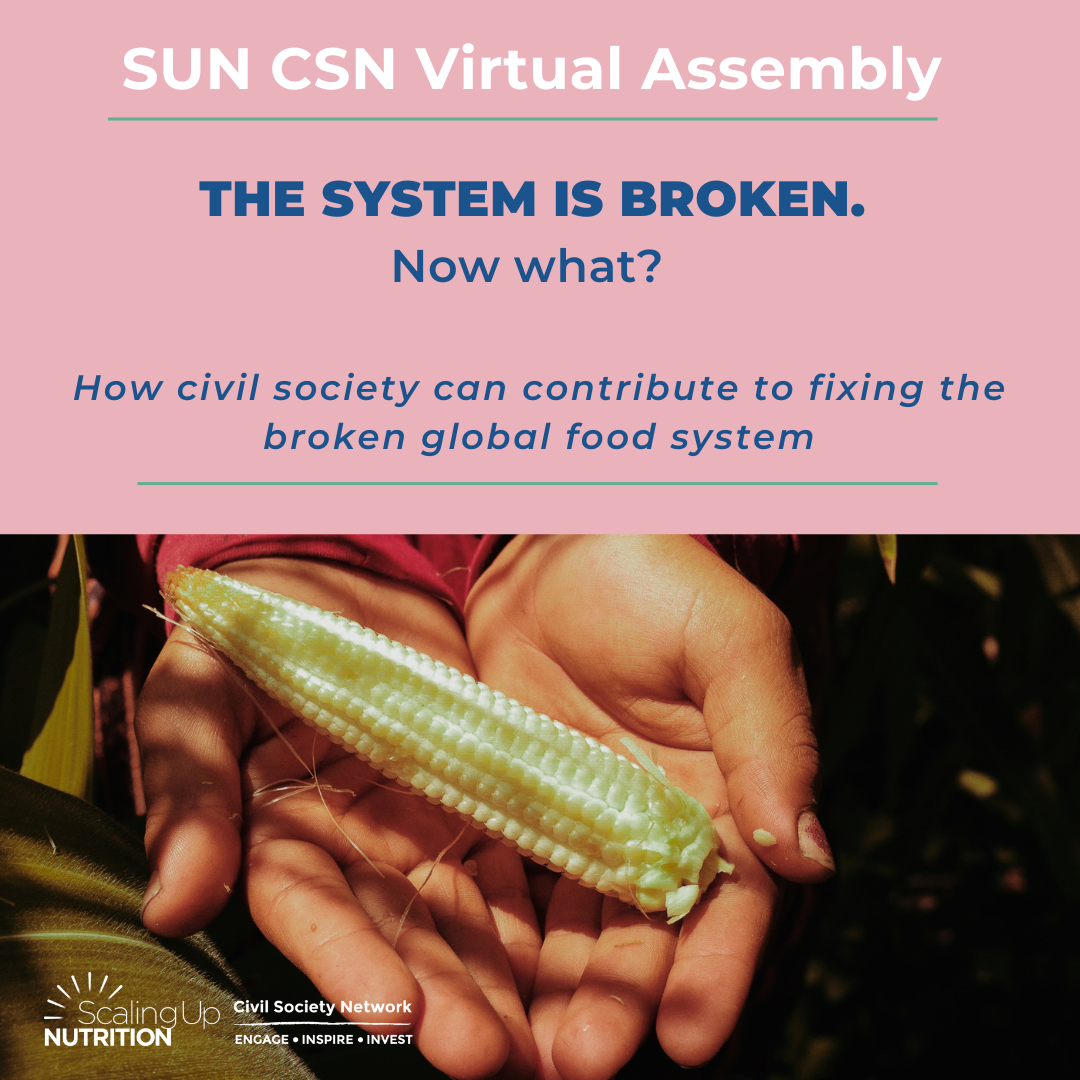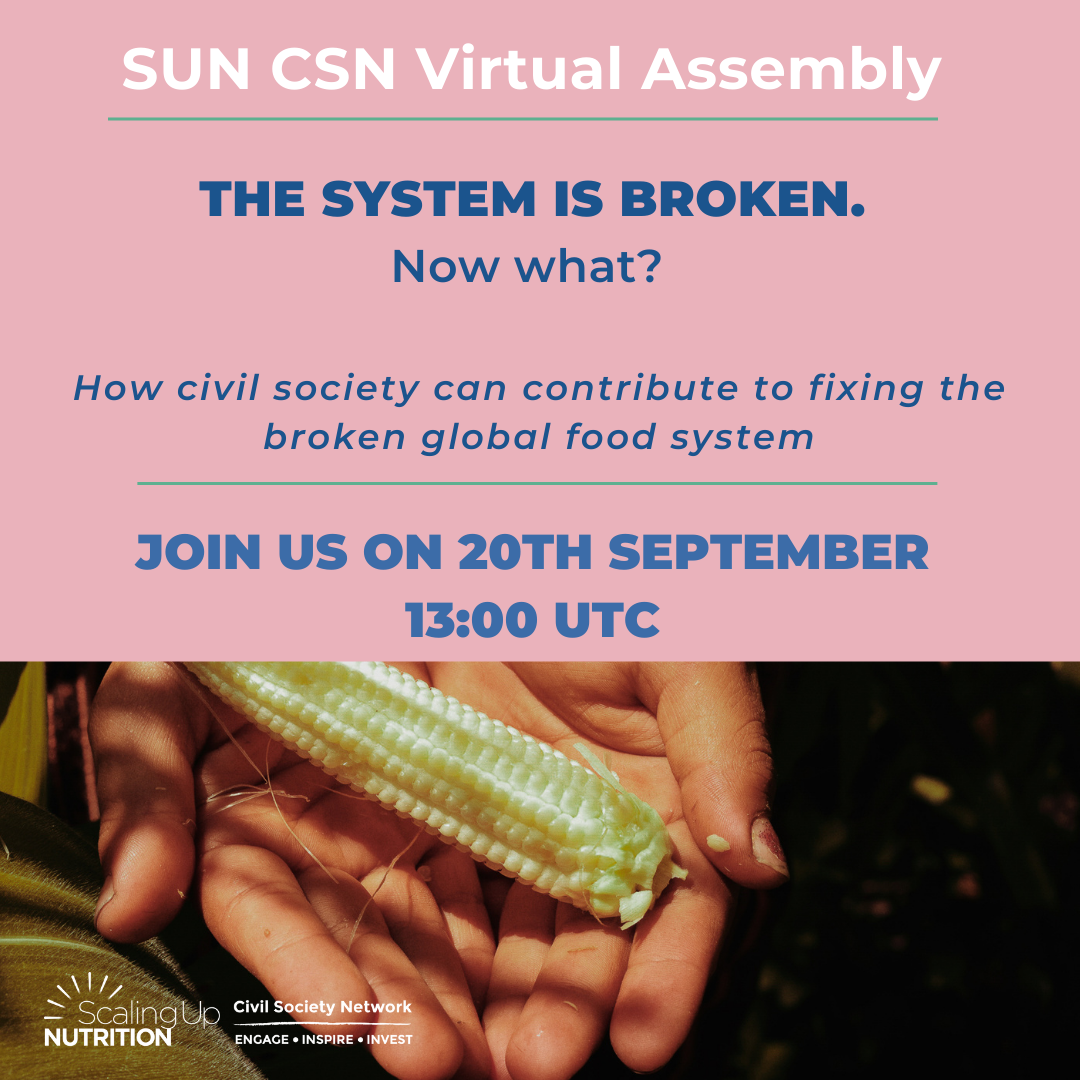As the UN Food Systems Summit+2 Stocktaking moment united world leaders, experts, and stakeholders to confront food systems challenges, we recognized a pivotal opportunity to shape a brighter, healthier future for all. As a result of this 3-days Summit, a Call to Action for accelerated Food Systems Transformation was issued. Unfortunately, this statement fell short […]
ReadAll Advocacy news
Select any topics you are interested in to filter news articles.
Empowering local voices at the Micronutrient Forum 6th Global Conference: A critical role in shaping the global agenda on nutrition resilience
By Alexandra Newlands, Head of the Scaling Up Nutrition Civil Society Network & Irshad Danish, Senior Advocacy Adviser at Nutrition International, and Chair of the Scaling Up Nutrition Civil Society Network With the contributions of Tanuja Rastogi, Director of Advocacy & Communications, Micronutrient Forum At the forefront of our journey towards a healthier and more […]
ReadCall to embed corporate accountability in the UN food systems stocktaking process
Our current food system is failing millions around the world. 828 million people go hungry every day whilst over 3 billion cannot afford a healthy diet. Moreover, food systems remain the number one transgressor of our planetary boundaries. Ongoing conflicts, extreme weather patterns and soaring food prices haven’t made it easier. Increased investments estimated around […]
ReadIntroducing the SUN CSN’s Joint Declaration: Reclaiming Our Food System
We are excited to present a groundbreaking declaration that embodies the collective efforts and unwavering commitment of the Scaling up Nutrition Civil Society Network (SUN CSN). Titled “Reclaiming Our Food System: 4 Principles to Prioritize,” this declaration sets forth a transformative vision to address the pressing challenges faced by our global food and agricultural systems. […]
ReadNutrition Sensitive training in the Philippines – A Tale of Experience
A photoblog by Georgine Obwana – CSA Uganda In this ever-changing world, it is necessary to keep updating yourself, your knowledge, and your intellect, to keep up with the continuous growth and development taking place. This is exactly why the one week blended international course on Enhancing Capacities on Nutrition – Sensitive programing (NSP) has […]
ReadThe Small Grants Programme Report is here!
Since 2018 SUN CSN has run a small grants programme, which invites interested & eligible CSAs and their members to apply for small grants, to implement and pilot small projects for research or innovation purposes over a 6-month period. Between 2018 – 2022 The SUN CSN Small Grants Programme has run four cycles of funding […]
ReadWe are all accountable
One year on from the Nutrition for Growth (N4G) summit, SUN CSN launches a social accountability campaign to hold stakeholders to account for promises made. The SUN Civil Society Network, along with the support of network members and global partners, want to see that the bold commitments we all made for nutrition become a reality! […]
ReadThe system is broken, now what? Five things we can do to make our advocacy demands a reality.
This September 2022, our members gathered again for a Virtual Assembly, the second of its kind. The objective was to agree upon the practical steps to deliver on a set of advocacy demands that emerged through a consultative process after our first virtual assembly. With the overarching goal to mitigate the impact of ongoing and […]
ReadGet Involved with the Latest CS Network Assembly!
Our first ever network-wide Virtual Assembly took place in May against the backdrop of ongoing global crises, which have seen food prices rise and access to adequate nutrition further diminished. Together, CSN members discussed how communities have been impacted and what we needed to change in the global food system to mitigate the impact of […]
ReadTraining on Enhancing Capacities on Nutrition-Sensitive Programming
November 15-16th 2022 (virtual) 21 – 25th November 2022 (in-person) IIRR Yen Center, Silang, Cavite, Philippines Application deadline: 27th September Malnutrition and hunger continue to afflict children and adults alike across the world, affecting their growth, development, and productivity. If unaddressed, undernutrition has serious short and long-term consequences for a child’s development. Access to, and […]
ReadSubmit news article
If you’re part of a SUN Civil Society Network and want to share a news article, submit it by filling in the contact form and selecting “Submit a news article in “Reason for contact” so that we can review and publish it.
November 15-16th 2022 (virtual)
21 – 25th November 2022 (in-person)
IIRR Yen Center, Silang, Cavite, Philippines
Application deadline: 27th September
Malnutrition and hunger continue to afflict children and adults alike across the world, affecting their growth, development, and productivity. If unaddressed, undernutrition has serious short and long-term consequences for a child’s development. Access to, and availability of, nutritionally dense food is also threatened by ongoing environmental and climate changes.
As such, we are offering to support ten CSN members to participate in the hybrid training on nutrition-sensitive programming hosted by the International Institute of Rural Reconstruction (IIRR). Participants will have the opportunity to visit actual projects being implemented by IIRR in partnership with the Philippines Department of Education and the Food and Nutrition Research Institute of the Department of Science and Technology and to apply the knowledge they have learned to develop action plans outlining how they will strengthen people’s resilience in coping with threats to food security.
Learning objectives
By the end of this course, participants will have:
- A thorough understanding of the State of the Food Security and Nutrition in the World recognizing the key issues or challenges and their impact on families and communities given the changing environment.
- Understanding of the concepts of nutrition-sensitive approach (NSA) and nutrition-sensitive programming (NSP), its importance, conceptual framework for action, principles and key strategies.
- Identified strategic and effective ways in developing and managing nutrition-sensitive programmes and interventions.
- Understanding of the participatory approaches in engaging communities to participate in community-based nutrition-sensitive programmes and projects.
- Formulated an action plan reflecting application of lessons learned and insights gained from the course in line with their national or community’s food security and nutrition context.
Course Information
You will be expected to complete the two sessions on the 15th and 16th November virtually from your home country. All participants will need to arrive in the Philippines one day before the training (Sunday 20th) and to leave one day following the training (Saturday 26th).
Module 1: Understanding the State Food Security and Nutrition in the World
Participants will have an overview of the State of the World on Food Security and Nutrition. Focus will be in examining key issues or challenges causing food insecurity, under nutrition and the environment along with various interventions, programmes or projects initiated at global, national or at local levels in meeting food security and the nutritional needs of families and communities.
Session 1: State of the Food Security and Nutrition in the World (SOFI)
Session 2: Participants’ Sharing on Countries’ Interventions, Programmes and Projects Concepts
Module 2: Concepts and Framework of Nutrition-sensitive Approach (NSA) and Nutrition-sensitive Programming (NSP)
Nutrition and Food Security experts and practitioners will be invited to lead an interactive discussion to have a common understanding of basic concepts on NSA/NSP and have an overview of the importance, conceptual framework for action, principles, and key strategies in nutrition-sensitive programming.
Session 1: The Nutrition-Sensitive Approach and Nutrition-Sensitive Programming
Session 2: Conceptual Framework for Action and Principles of Nutrition-Sensitive Programming
Session 3: Key Strategies in Nutrition-Sensitive Programming
Module 3: Developing and Managing Nutrition-Sensitive Programming
Through roving workshops, the participants will identify ways in developing and managing nutrition-sensitive programmes and projects. They will have an opportunity to learn from other participants on the participatory approaches they were engaged with in designing and enhancing food security and nutrition innovations and programmes or projects in consideration of climate change challenges. They will visit relevant nutrition sensitive program/project/ initiatives implemented by government institutions civil society organizations and learn from their experiences.
Session 1: Developing and Managing Nutrition-Sensitive Programmes/Projects
Session 2: Visits to relevant Nutrition sensitive programme / project/ initiatives
Module 4: Action Planning
The participants will prepare an action plan identifying programmes or activities considering their national or community’s food security and nutrition context to strengthen people’s resilience in coping with threats to food security. Should it be necessary, climate change adaptation and mitigation measures can be integrated in the action plan.
Venue
Yen Center, Silang, Cavite, Philippines
Course Fee
USD $2,000 per participant (inclusive of board, lodging, airport transfers, and training materials). The SUN CSN has funding to cover ten participants’ training and flight costs.
The course is open to all CSN members who can cover the course fee and airfare.
Participant Requirements
- Member of a Civil Society Alliance (CSA)
- Good working knowledge of English
- Committed to sharing learnings from the training to other CSA members
- Able to participate in all the virtual and in-person sessions
- Passport must have at least 6 months validity from the date of entry to the Philippines
- Fully vaccinated with acceptable proof of vaccination (foreign nationals who are not fully vaccinated cannot enter the Philippines)
Please apply for the training here.
